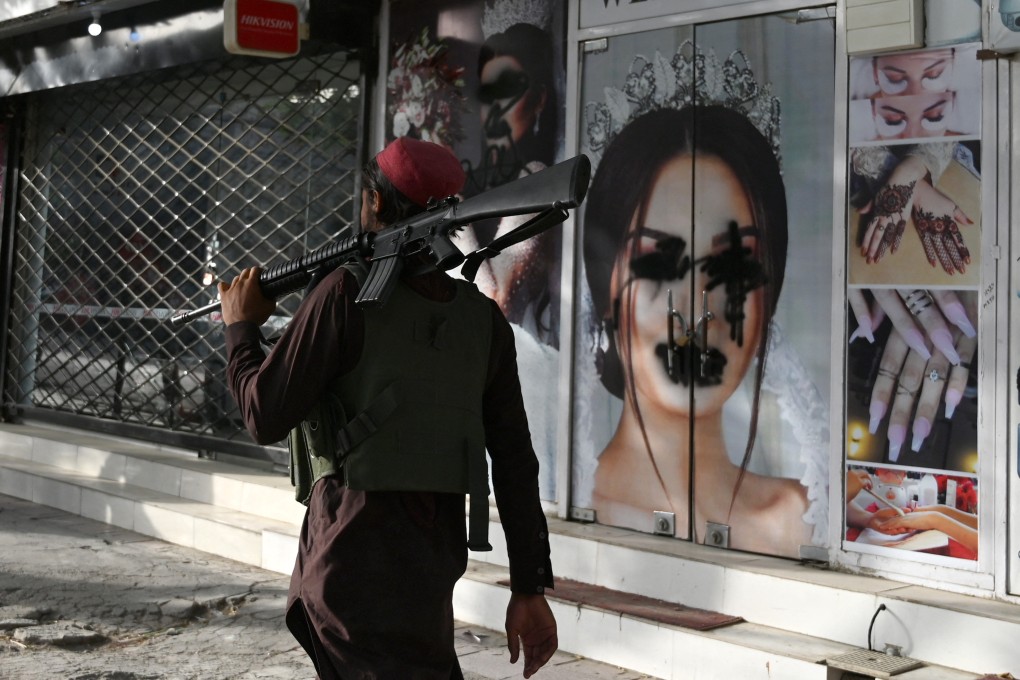Opinion | Why Taliban pledges mean little to Afghan women facing their worst nightmare
- It is hard to believe the Taliban will suddenly change its outlook towards women, given how it treats those already under its control
- Taliban ideology has remained linked to doctrinaire versions of sharia law that call for reducing women’s freedom, casting doubt on pledges of inclusion

The withdrawal of US forces from Afghanistan has provided the Taliban with the means to once again establish power across the country. Since its rapid advance to seize the capital, Kabul, thousands of people have been trying to flee.
Thus, the important question is: what does the future look like for Afghan women under renewed Taliban rule?
Women in Afghanistan attained the right to vote as early as 1919. Similarly, gender segregation was abolished in the 1950s and the 1964 Afghan constitution provided women with an entry into political life.
However, these advancements suffered a serious setback with the emergence of the Taliban in the 1990s. The Taliban enforced its own, extreme version of sharia law that severely restricted women’s day-to-day freedoms.

